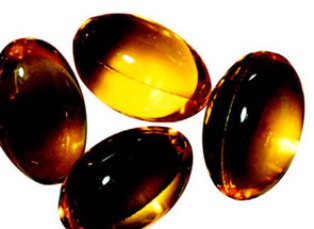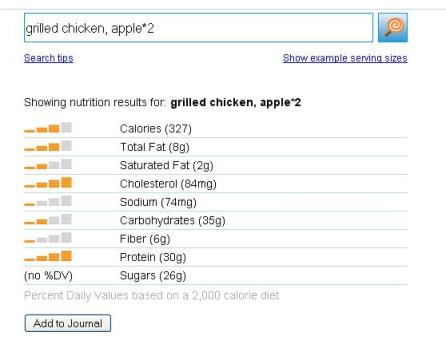
“Heya?|where did those cupcakes go?”
Like a never-ending western North Carolina climb where each switchback reveals another uphill, and the finish is shielded by tall pines, the struggle to lose weight and to stay lean is incessant.
In wrestling weight gain, competitive cyclists share the same mat as “regular” Americans. Like jockeys, all competitive bike racers strive for maximal leanness. It’s physics: Weigh less and the same number of watts push you farther and faster, especially when going uphill or accelerating from a slow speed. Remember those velocity problems in Physics 101?
But is it conceivable that losing weight a?? even if accompanied by lower cholesterol levels??a?? could be detrimental to long-term wellness? Obviously, the question answers itself.
Unless your Internet connection has been interrupted in the last few days, you have probably heard of the “Twinkle diet.” Kansas State University nutrition professor Mark Haub tested the hypothesis that if he reduced his daily calorie consumption from 2600 to 1800 he would lose weight.
Here’s the cool part: To amplify his findings that calorie restriction is all that is required to lose weight, he primarily ate a convenience-store diet. Calories came from processed food, high in trans fat and high fructose corn syrup a?? the worst of the worst. Oreos, Hostess cakes, Little Debbie snacks, sugary cereals and Doritos were his staples. (He ate vegetables in the presence of his kids.)
The results were incredible. It worked. Not only did he lose 27 pounds, but he also markedly improved his cholesterol level and lowered his total body fat percent.??Stunning.??Despite the high-calorie inflammatory content of his food, faithfully adhering to a daily calorie restriction resulted in weight loss.
The message is that potato chips do not cause fatness, regularly eating the whole bag does. A few M&M’s are okay, just not hundreds of them.
A master of the obvious is Professor Haub. He isn’t saying he is any healthier, no one would argue that. He just makes it harder for the dietary perseverators, the nutritional elite, the peddlers of weight loss scams, to make a simple solution complex. Sorry.
It’s a quandary isn’t it: We want our obese patients to lose weight, but we cannot advocate junk food as the main entree. We want both — fewer calories and more nutrients.
Reducing inflammation is the key to heart health. Keeping blood vessels healthy comes from good sleep, regular exercise and a good diet. Regularly eating inflammatory trans-fats and insulin-spiking high??glycemic snack foods will surely negate the positive effects of weight loss.
But at least Dr. Haub has helped doctors shorten the coaching session part of an office visit with an obese patient. To the commonly heard phrase,??”Doc, I really don’t eat that much,” we can respond — compassionately — that studies show that if you eat fewer calories you will lose weight.
In discussing “these studies” with our patients it will be best to omit the methodology section of Dr Haub’s experiment. No worries — we are now a headline-only society anyways.
Seriously. Who ate those cupcakes?
JMM
o




 Vitamin D has been talked about as the vitamin a?? the one??that might help fend off??everything from cancer to heart disease to autoimmune disorders, if only we were to get enough of it.
Vitamin D has been talked about as the vitamin a?? the one??that might help fend off??everything from cancer to heart disease to autoimmune disorders, if only we were to get enough of it.
 Scientists have discovered a new, highly-transmissible gene that could, quite easily in fact, open a frightening new front in the ongoing global war against superbugs.
Scientists have discovered a new, highly-transmissible gene that could, quite easily in fact, open a frightening new front in the ongoing global war against superbugs.


 Imagine a water bottle that knows how hard and how far you are running, how much you’re drinking, what’s the outside temperature, and, based on all these variables, the device calculates when you need to have a drink. Cambridge Consultants have developed the i-dration bottle that does just that.
Imagine a water bottle that knows how hard and how far you are running, how much you’re drinking, what’s the outside temperature, and, based on all these variables, the device calculates when you need to have a drink. Cambridge Consultants have developed the i-dration bottle that does just that.



 This past weekend Oscar-nominated Hollywood and Broadway actress Jill Clayburgh died at age 66. The cause was chronic lymphocytic leukemia (CLL), which she had been fighting, privately, for 21 years.
This past weekend Oscar-nominated Hollywood and Broadway actress Jill Clayburgh died at age 66. The cause was chronic lymphocytic leukemia (CLL), which she had been fighting, privately, for 21 years. Male readers be advised! Using your laptop placed on your knees to read this post may cause your testicles to heat up quite significantly. However surprisingly, this is not due to the heat dissipated by many laptops, but rather due to the positioning of the legs. A study just published online in the journal Fertility and Sterility investigated ways to avoid the testicles from overheating while using a laptop computer.
Male readers be advised! Using your laptop placed on your knees to read this post may cause your testicles to heat up quite significantly. However surprisingly, this is not due to the heat dissipated by many laptops, but rather due to the positioning of the legs. A study just published online in the journal Fertility and Sterility investigated ways to avoid the testicles from overheating while using a laptop computer.





